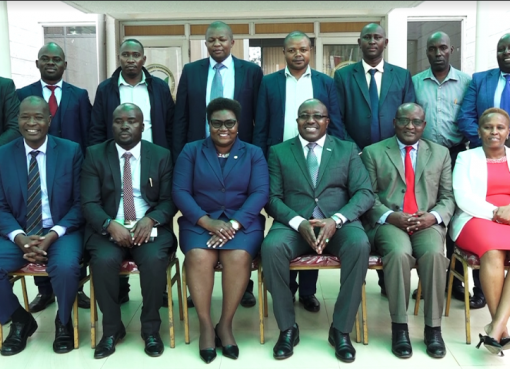The under construction Isiolo Municipal’s modern Market is 80% complete and set to be opened for business at the end of this year.
The Market has capacity of accommodating 1200 businessmen majority of whom had lost their merchandise to fierce fire in September 2017.
Isiolo Municipal Manager Mr. Osman Halakhe said the three-storied infrastructure will cater for wholesalers and the retailers among other traders with the open-air market taken to the top floor.
“We will ensure most traders get sufficient space to do their businesses since the market design was done with consideration that different traders have diverse needs according to the nature of their businesses,” said Mr. Halakhe.
He added that the County government was hastening the process so that the traders who had been operating from awkward places near the new market were resettled and have their incomes enhanced and the government’s revenue raised in an organized manner.
The Municipal Manager said the contractor was working round the clock to complete the plumbing, electrical installations, and fixing doors and windows to the facility.
Speaking during a technical working group and the Market Committee members’ visit to the site, Mr. Halakhe emphasized the significance of the facility saying it is anticipated to promote trade relations with the neighbouring Counties of Meru, Nanyuki, Samburu, and Marsabit as well as provide enhanced business returns to the stakeholders.
He also revealed that the County government would sink a borehole in the market to ensure reliable supply of water with a view to achieve the hygiene standards and meet traders’ water needs.
The manager promised that the stakeholders would work in a transparent manner to ensure genuine beneficiaries whose businesses were destroyed by fire seven years ago were given priority in allocation of the stalls and spaces.
The Market committee led by Joseph Gitonga (Chairman), and Gerald Ntaari (Secretary) urged for honouring of the listed beneficiaries in the original records and appealed for hastened resettlement of traders to stop them from endangering lives by operating from the busy Isiolo – Meru road reserves.
They expressed optimism that the work environment will be better since they would be conducting business from one central place where the buyers and sellers of goods and services will be converging.
By David Nduro




